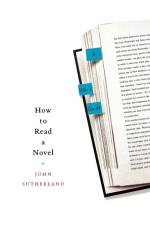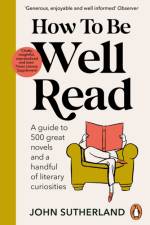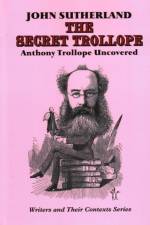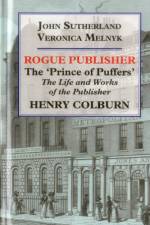- 'Prince of Puffers': The Life and Works of the Publisher Henry Colburn.
von John Sutherland & Johanna Marie Melnyk
65,00 €
This is the first-ever book length study of one of the most important and constantly innovative 19th century book and periodical publishers. The mysterious and often elusive but enormously influential Henry Colburn (c.1784 – 16 August 1855) was the pre-eminent publisher of ‘silver-fork’ novels, and of many influential new writers.Colburn’s main claim to rehabilitation are his troop of 'name' authors: Lady Morgan, Disraeli, Bulwer-Lytton, Captain Marryat, G.P.R James, Mrs. Margaret Oliphant, Mrs. Catherine Gore, Mrs. Caroline Norton, Frances Trollope, Anthony Trollope, Richard Cobbold, R. S. Surtees. Many would not have had a start in the careers they later enjoyed were it not for Colburn.This is a lively, and important new work on early 19th-century publishing and the patterns for the century which Colburn set. It sketches intantalizing outlines the Regency, early nineteenth-century and Victorian book trades – and the consequences of Colburn’s impact on those worlds. In addition, the work centres on Colburn’s most celebrated authors. The book – which is well illustrated - contains the first catalogue of Colburn’s publications.Thus far, literary and publishing history have drawn a formidable charge sheet against Henry Colburn. In personal pedigree he is slandered as a ‘guttersnipe’, or a ‘royal bastard’. In Disraeli’s pungent description he was a publishing ‘bawd’, engaged in wholesale literary prostitution. A very bad thing. And yet this publishing Barabbas can be argued to have been innovative and a force for constructive change in the rapidly evolving book trade and---paradoxically---a man of taste.Various rumours circulated that he was either a bastard of the Duke of York or of Lord Landsdowne. Date uncertain. He liked to weave illustrious (typically mendacious) pedigrees for himself as much as for his dubiously aristocratic purveyors of silver forkery.What, precisely, did Colburn do that should raise his reputation and make us see him as a good thing? In the largest sense he demonstrated, by example and practice, the need for consolidation between hitherto dismembered arms of the London book world. Beginning his career at apprentice level in the London West End circulating-library business he went on, having learned at the counter what the customer wanted, to become the undisputed market leader in the publication of three-volume novels and (sub-Murray) travel books.The three-decker went on to become the foundation-stone of the ‘Leviathan’ library system (Mudie’s and Smith’s) and created a seventy-year stability in the publishing, distribution and reception of English fiction. In 1814 Colburn founded the New Monthly Magazine. In 1817, he set up England’s first serious weekly review, the Literary Gazette. In 1828 he helped found the Athenaeum (distant parent of today's New Statesman). His behaviour, as a magazine proprietor and editor at large was typically outrageous. But the link he forged between higher journalism and literature was momentous.








